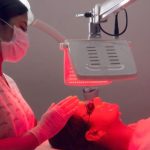Pregnancy is a magical journey for a woman, but it is also rife with risks. You may face several complications during pregnancy, in labor, or after delivery. At the same time, threats like miscarriage, stillbirth, and birth defects can affect your little one. But luckily, the incidence of such mishaps is low, and more women and their babies get through safely. As an expectant mother, you must be vigilant at every step to prevent harm to your unborn baby.
Unfortunately, many women lack awareness about potential dangers and hardly know how to address them. Autism is one of the common conditions linked with several pregnancy-related issues. While some factors are avoidable, others are difficult to change. However, being aware of the risks and possible solutions can save your baby from autism during pregnancy. Here are some precautions you can follow to lower the risk and bring a healthy baby into the world.
Plan pregnancy early
Women can conceive anytime before menopause. Moreover, there are no age limits for men when it comes to fertility. As long as you produce healthy eggs and sperm, you can make a baby. But studies indicate a higher risk of autism in children of older parents, so it is better to plan a pregnancy sooner than later. Some evidence suggests that the age of the male genetic parent matters more than the mother’s age. You must discuss the concern with a doctor if you plan to have a baby after your forties.
Stay ahead of gestational diabetes
Gestational diabetes occurs in women who are otherwise non-diabetic but develop the condition during pregnancy. Any form of diabetes mellitus can be a risk factor for the baby, and autism is a possibility in such cases. While gestational diabetes is not always avoidable, your healthcare provider can guide you about managing it to minimize fetal risk. Regular monitoring is essential to detect the condition at the earliest and address it before it harms the baby. Further, your doctor may suggest ways to keep it at bay with some precautions.
Avoid unnecessary medication
Although would-be moms know this rule, they often slip because they consider common drugs like Tylenol safe during pregnancy. However, the latest studies link it to increased risks for the child. The risk of developing neurodevelopmental disorders, such as attention deficit hyperactivity disorder (ADHD) and autism runs high. Parents can even take Tylenol and autism legal action against manufacturers under product liability laws due to the failure to warn pregnant women against potential risks. Besides Tylenol, some common antiepileptic drugs may also lead to autism in the baby. The best piece of advice is to avoid unnecessary medication in the first place and consult your doctor for the ones required.
Ditch environmental toxins
Environmental toxins are harmful to everyone, but they are even worse for pregnant women and unborn babies. Besides steering clear of everyday toxins such as chemical-based cosmetics, household cleaners, and vehicle smoke, you must know the toxins that may cause autism in your baby. For example, PBDEs (polybrominated diphenyl ethers), PCBs (polychlorinated biphenyls), PCDDs (polychlorinated dibenzodioxins), and BPA (bisphenol A) can cause immense harm. Typically, these chemicals occur in some food packaging, plastic goods, newly built houses, and new carpets. You must take appropriate measures to ditch them during pregnancy.
Prevent preterm birth
Another possible reason for autism in newborns is preterm birth because statistics show a high prevalence of the condition in babies born before full term. Likewise, low birth weight is a related risk you must be aware of. While you cannot do anything to eliminate the possibility of early delivery, there are ways to reduce it. Your doctor can assess your risk factors for preterm labor and guide you about the precautionary measures. For example, you must be extra cautious if you have a history of preterm birth. Also, be watchful about complications such as infections during pregnancy, birth injury or trauma, an autoimmune disease in the birth parent, multiple births, and prenatal stress because they may lead to early labor and elevate the overall chances of autism in the unborn child.
Awareness, proper precautions, and timely intervention can lower the autism risk in newborns. But everything boils down to taking it seriously and paying attention during pregnancy. Following this checklist can help you address the concern and ensure the well-being of your little one. Also, discuss your apprehension with your doctor and seek advice during the pregnancy planning phase so that you can lower the chances of newborn autism from the outset.









